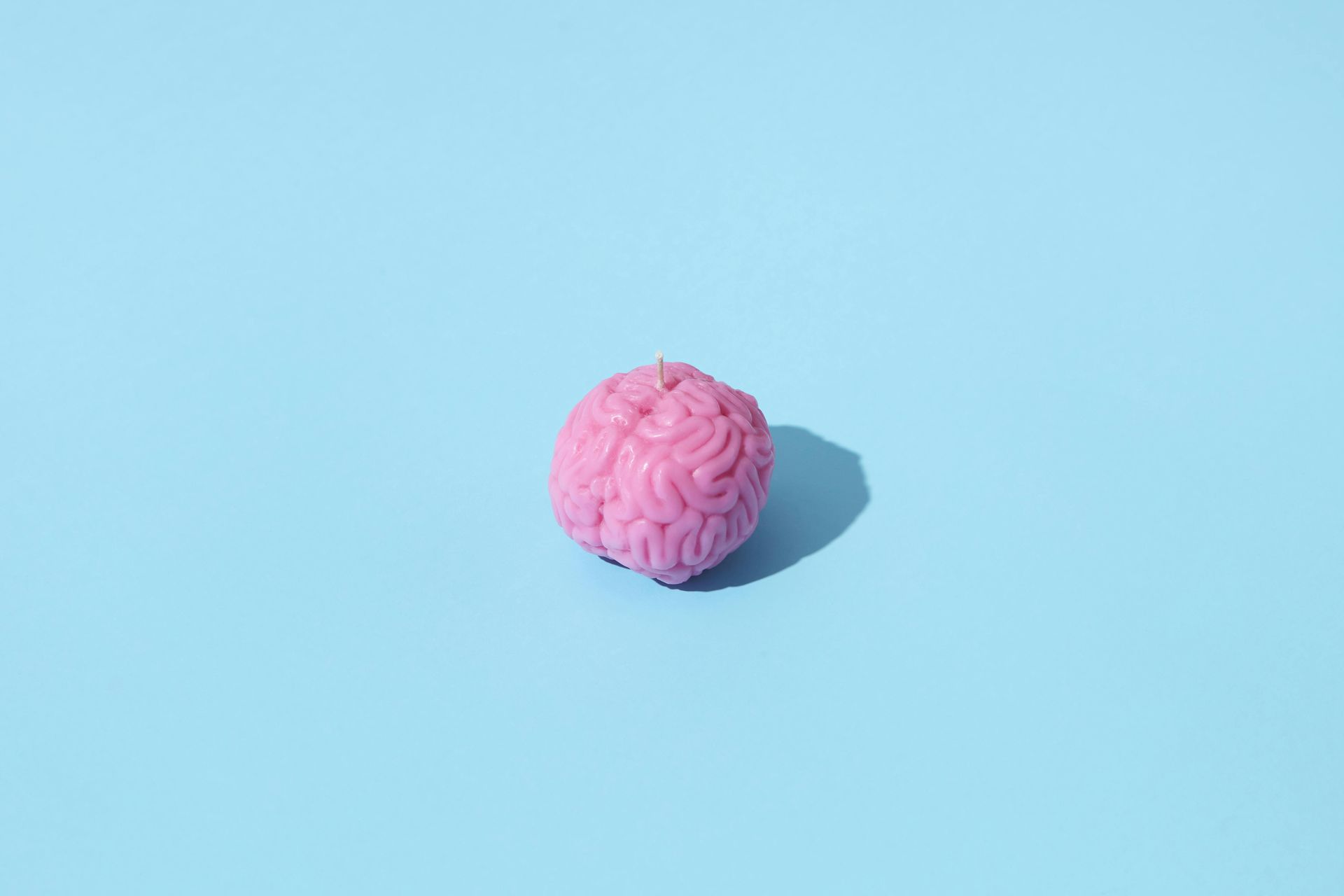Blog
Exploring the questions, perceptions and cultural nuances around mental health and well-being.

You've finally decided to reach out for help with anxiety, low mood, or those intrusive thoughts that won't quit. It's a big step. But then the questions start rolling in: Who will I actually be talking to? Are they qualified? Will they understand what I'm going through? These questions matter. That's why we're pulling back the curtain on the Ontario Structured Psychotherapy (OSP) Program . If you're an adult in Ontario struggling with anxiety, depression, traumatic stress, or obsessive-compulsive concerns, OSP offers free, evidence-based mental health support. But more importantly, you'll be working with a team of professionals who are specifically trained, closely consulted, and genuinely invested in your well-being. It's important to highlight that all team members receive training in Indigenous mental health, anti-oppressive care, gender-affirming care, and culturally responsive care. Let's introduce you to the people who might be part of your care journey. Everyone Starts in the Same Place: Your Assessment Clinician Think of your assessment clinician as your mental health guide. This is the first person you'll speak with—by phone or virtually, so no pressure to show up somewhere new when you're already feeling anxious. Assessment clinicians are registered mental health professionals—specifically, registered psychotherapists or registered social workers. Their job is straightforward: listen to what you're experiencing, understand what you need, and connect you with the support that may be best for you right now. What makes them good at this? They receive extensive training in all the conditions OSP treats, are supported by clinical psychologists who provide clinical expertise on best practice, and work collaboratively with clients towards their goals. Your Care Options: Six Paths, One Goal Depending on your need and preferences, you'll work with one of several types of providers. Here's who you might meet: MindBeacon Therapists: Support Through Your Screen If you prefer going at your own pace or your schedule doesn't allow for regular appointments, you might work with a MindBeacon therapist. These are master's-level registered professionals—mostly social workers, along with some psychotherapists and psychologists. Through secure messaging, they'll guide you through cognitive behavioural therapy (CBT) programs at your own pace. You get 12 weeks of active support, plus continued access to materials after that. They're trained specifically in digital care delivery and receive regular consultation with psychologist clinical leads. BounceBack Coaches: Building Skills, One Call at a Time BounceBack coaches work one-on-one with you by phone to help you develop practical skills for managing stress, anxiety, and low mood. While they're not registered clinicians, they bring college diplomas or university degrees (often in mental health fields) and complete about 10 weeks of intensive CBT training before working independently. Coaches receive ongoing consultation from clinical psychologists, their sessions are regularly reviewed, and they have access to an on-call psychologist during every session. You're getting evidence-based tools delivered by someone who's closely supported by experts. CAB Clinicians: Registered Professionals, Focused Sessions CAB clinicians are registered mental health professionals regulated by Ontario colleges—think social workers, nurses, occupational therapists, or psychotherapists. They deliver CBT skills through regularly scheduled sessions designed to address your mood and anxiety concerns. New clinicians go through a supported onboarding process with close oversight, and all CAB clinicians receive ongoing consultation, session reviews, and have an on-call psychologist available throughout program hours. Tranquility Practitioners: Experience Meets Digital Delivery If you're paired with a Tranquility practitioner, you're working with a registered social worker or psychotherapist who holds a master's degree and brings at least three years of experience. They provide video calls and message support, delivering CBT skills through a digital platform. These practitioners are trained in CBT, as well as motivational interviewing and cultural competence, like all the coaches and therapists within the program. Quality assurance reviews and continuing professional development are built into their role. OSP Group and Individual Therapists: When You Need More Intensive Support Most commonly, you’ll start with one of the options above- they are easy to access and have minimal wait times. But if you need more frequent support, you might step up to individual therapy or group therapy with an OSP therapist—a registered social worker or psychotherapist with CBT experience. OSP group and individual therapists provide weekly one-on-one sessions (in-person or virtually). While, all therapists have experience in CBT before joining the OSP team, they also complete five courses in CBT accredited by the University of Toronto, participate in weekly individual consultations and biweekly group consultations with clinical and equity consultants (psychologists), and regularly review recordings of their sessions (with your permission) to ensure they're delivering high-quality, culturally responsive care. The People You Don't See (But Who Are Always There) Behind every provider you work with at OSP- Brampton, Halton, Mississauga are Clinical and Equity Consultants—licensed clinical psychologists with PhDs in Clinical Psychology. They don't provide direct client care, but they're the ones ensuring everyone else is delivering excellent care. These consultants train assessment clinicians, group and individual therapists, review cases, observe sessions, and make sure your care is evidence-based, culturally responsive, and equitable. They complete specialized training in clinical consultation, and like all team members, receive training in the areas mentioned above. This includes Indigenous mental health, anti-oppressive care, gender-affirming care, and culturally responsive care. Think of them as the quality assurance team working behind the scenes to make sure you get the care you deserve. What This All Means for You Here's the bottom line: no matter which OSP provider you work with, you're getting a trained professional who operates within a system designed for quality and safety. Every provider—from coaches to individual therapists—receives training in privacy, ethics, cultural and inclusive care, suicide risk assessment, and safety planning. Every provider has access to clinical psychologists for consultation. Every provider's work is reviewed and supported by clinical psychologists. Ready to Take the Next Step? If you're an adult in Ontario (18+) and need help with sadness, anxiety or stress, reach out to us for support. We have a qualified and compassionate team committed to your health and well-being. Visit OSPcarepointhealth.ca to get started.

Cognitive Behavioural Therapy (CBT) is one of the most well- researched and widely used forms of therapy today, but there are still lots of misconceptions around it. Assumptions and myths about CBT may prevent people from exploring a treatment that could help them. For our latest blog, we sat down with Dr. Naomi Ennis, Psychologist, and Regional Clinical and Training Lead for the Ontario Structured Psychotherapy Program in Brampton-Halton-Mississauga (OSP-BHM) at CarePoint Health, to debunk common myths about CBT. What exactly is CBT? CBT is a type of therapy that helps people understand how their thoughts, feelings, and actions are connected. There are specific CBT treatments for different concerns – it’s helpful to think of CBT as an ‘umbrella term’ for various treatments. First things first – CBT is not “positive thinking”. Sometimes the way we think can make us feel even worse or lead us to do things that keep our problems going. In CBT, you work as a team with your therapist and take a deeper look at the pattern of habits, thinking, and emotions that may keep you feeling stuck. This type of therapy is practical and focused on learning how to shift the way you respond to stress, challenging moods or anxiety. CBT allows you to gain skills and gives you tools for ongoing management. What are common myths? CBT just teaches you to “think positively” CBT ignores your feelings CBT only focuses on the present and doesn’t care about your past CBT is a “one-size fits all” or robotic/cookie-cutter CBT is “all about homework” CBT is too simple for complicated problems Myth: CBT just teaches you to “think positively” Fact: CBT isn’t about pretending everything’s fine or forcing happy thoughts. It’s about learning to notice when your mind gets stuck in unhelpful patterns and remembering that thoughts aren’t facts. CBT gives you tools to step back, look at the evidence, and see things from a more balanced perspective. Over time, CBT can help you to respond to challenges with more flexibility and with a calmer approach. This approach doesn’t make you ignore the hard stuff; instead, it allows you to see things more clearly. Myth: CBT is too simple for complicated problems Fact: CBT may seem simple, but it’s a flexible and evidence-based approach that can be adapted for complex challenges like trauma, obsessive-compulsive concerns, or chronic stress. While CBT methods may seem simple, using them takes insight, practice, and courage — that’s what makes CBT a powerful therapeutic approach. Myth: CBT ignores emotions Fact: CBT places emotions at the centre of the work. It helps you understand how your thoughts, feelings, and behaviours all connect — and how changing one can shift the others. Rather than pushing emotions away, CBT teaches you how to notice, name, and respond to them in healthier ways. Many people find that understanding the thoughts behind their feelings makes their emotions easier to manage. Myth: CBT only focuses on the present and doesn’t care about your past Fact: Indeed, CBT often focuses on what’s happening in your life right now — your current thoughts, feelings, and behaviours. But that doesn’t mean your past is ignored or unimportant. In CBT, the past is explored when it helps you understand patterns that still affect you today. For example, you and your therapist might look at where certain beliefs or coping styles began — perhaps in childhood, in past relationships, or during a stressful time in your life. The goal isn’t to stay in the past, but to understand how it shapes your present and how you can move forward differently. Key takeaways It’s important to keep in mind that everyone has different lived experiences and needs. While some people may be successful using CBT as a form of therapeutic treatment, other people may need other supports. Research finds that CBT is often the first recommended approach for treating many mental health concerns. CBT is not a quick fix, and it takes consistency and commitment for it to be successful. Keep in mind that healing takes time – but it is not impossible to reach goals using this approach. If you or someone you know is experiencing sadness, feeling worried or even stuck, these could be signs that therapy can help. The OSP program offers a range of mental health services based in CBT. Our therapists listen to you and match you to the service and care that best meet your needs. Interested in learning more? Visit OSPcarepointhealth.ca

October 10th is World Mental Health Day – a powerful reminder that taking care of your mental health has never been more important. Whether you’re navigating stress, anxiety, or just not feeling like yourself, this day is about more than awareness – it’s about breaking stigmas, sharing support, and reminding each other that no one has to struggle alone. If you’re new to this journey, it can feel overwhelming when you’re figuring out where to start. To help you or someone you care about, we sat down with Andrea, a psychologist and clinical and equity consultant for the OSP program at CarePoint Health , to understand ‘ Where do I begin ?’ when reaching out for help. Common signs Mental health symptoms don’t always look the same for everyone. There are common signs, such as persistent feelings of sadness, anxiety, and irritability, that can impact your daily life. Other signs, such as changes in sleep, unhealthy coping strategies such as substance abuse or even overworking, isolating, or self-harming, can also occur. Where can I begin? We recommend speaking to your family doctor first, so that they can understand your experience and connect you with options in your community. If you don’t have a family doctor or want to start this journey on your own, you can reach out to us for support. We have trained and understanding coaches and therapists who can help you virtually, over the phone, or in person. They can even work around busy schedules through online support, check-in calls, and video conferencing. It’s important that you feel supported, no matter where you are. Benefits of our mental health program Support for sadness, anxiety, and fears Open to all adults 18+ in Ontario Free of charge No referral or health card required Learn real strategies at your pace Different needs, different speeds Everyone has different needs and requires different levels of support. Our assessment clinicians can help explain the different services we offer and match you to the support that best fits your needs. Our intake process is key because it helps us learn more about you, your goals, and which service will best fit your lifestyle (e.g., student vs. working parent). Our goal is to help you feel supported and gain lifelong skills. Your progress is important, which is why we do check-ins and closely monitor how you feel. Based on your needs, if you require more or less support, you can move between different services within the program – this includes both individual and group therapy. What to expect It’s completely normal to feel nervous before your first session which is typically an intake session — the unknown can be intimidating. There is a basic and standard routine at the start, and can include the following: Your intake clinician will explain their background, approach, and confidentiality policy. Expect lots of questions about your history, current concerns, and goals. You’ll collaborate to create a personalized treatment plan. You might get tasks to do outside of session — like reflecting on goals, tracking symptoms, or completing worksheets. Remember, the first session is just the beginning. It’s okay to take your time to open up and build trust. It’s okay to ask for help There is still a lot of stigma around mental health, and people might feel embarrassed or brush off their problems, “as no big deal.” Everyone has their own lived experience in life, and if your mental health is impacting your day-to-day life, it’s important to seek help. Keep in mind that seeking support is a personal choice. If someone you care about could benefit from support, help share education on the available resources. Caring for yourself isn’t about doing everything. It can be as simple as asking for help. Additional Resources: Free mental health program (Brampton, Halton, Mississauga) 9-8-8: Suicide Crisis Helpline Punjabi Community Health Services (Sahara Mental Health Program) The Indigenous Network Black Health & Social Services Hub Peel











